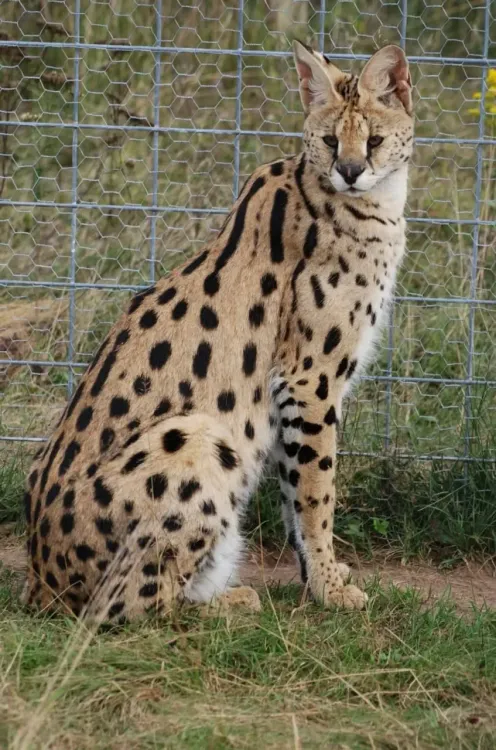BSF Saves African Wild Cat from Smugglers at India-Bangladesh Border

Kolkata, Dec 26 (NationPress) In an ongoing initiative to tackle different forms of crime along the India-Bangladesh border, the Border Security Force (BSF) announced that a Serval, or African Wild Cat, was rescued from being smuggled from India to Bangladesh in West Bengal's Nadia district on Wednesday. The animal has been transferred to the state Forest Department for proper rehabilitation.
"This successful rescue operation was made possible due to the vigilance of the troopers of the 56 Battalion stationed at the Bhattupara Border Outpost. On Wednesday evening, a jawan on patrol noticed 3-4 individuals approaching the IBB Road (on Indian soil) carrying a heavy load. He promptly informed his fellow jawan via radio. When confronted by the two jawans, the suspects abandoned a wooden box and fled into the darkness and dense papaya plantation. Upon inspecting the box, the BSF personnel discovered the Serval inside. They transported the box, along with the animal, to the Bhattupara BOP for further action," stated BSF DIG, South Bengal Frontier, and spokesperson N.K. Pandey.
Commending the efforts of the BSF personnel, he remarked: "The swift and decisive actions of our vigilant jawans are yet another demonstration of the BSF’s unwavering dedication to protect the nation’s borders and thwart all forms of trafficking. The rescue of the Serval signifies a triumph in the battle against wildlife trafficking and underscores the efficiency of our border security measures."
Over recent months, the BSF has rescued various exotic animal species, including an Alpaca and Golden Pheasants, from being smuggled across the border.
The Serval, the only representative of the genus Leptailurus, inhabits sub-Saharan regions outside of rainforest areas. They typically measure between 54-62 cm in length and can weigh as much as 18 kg. These solitary carnivores are capable of leaping up to 2 meters high to catch prey, both day and night, and have a territory that can extend up to 32 square km.
These creatures are often hunted for their pelts and other body parts. Hunting them is illegal in countries such as Algeria, Botswana, Congo, Kenya, Liberia, Morocco, Mozambique, Nigeria, Rwanda, Tunisia, and South Africa’s Cape Province. Similar hunting restrictions apply in several other nations.









